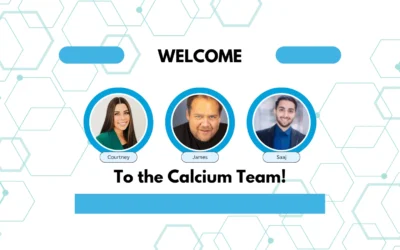Ian Bolland spoke to Terrence Ryan, CEO and founder of Calcium. The company looks to gather health data from apps, medical devices and wearables, and give consumers tools to use their EHRs to monitor, manage and optimise their health.
Tell us about Calcium. Where did the idea come from?
I have spent a few decades building companies and solutions around health data. The idea for Calcium came out of my realisation that the huge issues plaguing the healthcare system can only be solved when we put the consumer back at the centre of the equation. The more I dug into this, the more I realised that no-one has come close to solving the problem. Despite all the marketing material out there that suggests otherwise, very few healthcare companies are actually focused on the consumer or the patient. At the same time, laws like FHIR (HL7 Fast Healthcare Interoperability Resources) were being passed to empower and protect consumers’ health data, while smartphones, wearables and other technology were digitising health. Beyond that, nearly everyone I talk to has a personal anecdote to share about their own frustrations with the way the health system is currently structured. I saw the convergence of these elements as a clear signal that the market was ripe for a company like Calcium.
Do you need access to various databases in order to gather the health data you require?
Absolutely. We are currently in the process of integrating with other digital health disruptors and will probably be integrated with around 20 core digital health systems.
Are there any security challenges you have faced?
No. I’ve led many companies that have had to meet rigorous security standards like HIPAA and HITRUST protocol, and can say that this is one of the benefits of starting a company right now. As a young, nimble company, we are unencumbered with the legacy systems and tools that are more vulnerable to hackers. Five years ago we might have faced more security challenges, but it is to our advantage that the major cloud providers have compliance built in.
Tell us about becoming HIPAA compliant – what safeguards, if any, had to be put in place?
We take data protection and compliance very seriously at Calcium. To receive the HIPAA Seal of Compliance, we brought in a consultant who led us through an exhaustive internal audit. We have a full-time security officer and every one of our staff members — from IT to marketing — has gone through extensive HIPAA compliance training. Again, the times are in our favour: becoming HIPAA compliant used to be a much more onerous burden. The industry has a much better understanding of it today than when it was first introduced ten years ago.
Ultimately, we consider HIPAA to be only one part of the multi-layered protection your data needs to be truly private and secure. We also apply HITRUST protocols and advanced security technology, and our dedicated personnel ensure that your health data is protected every step of the way.
You say ‘app users deserve to know how their data is being used’ – how does Calcium use their data?
We have made a concerted effort to state our terms and conditions in clear and plain English. Calcium returns full control and ownership of all a user’s health and wellness data to them in a form that is portable and secure. We will also use that data to provide custom insights to help people manage their data for better health.
How do you think health data will continue to be used in the future?
I am immensely optimistic about the vast opportunities technology will afford us in healthcare. I believe we are moving toward a future in which health data is exchanged securely and used for good. I see a world in which people are empowered to be proactive about their health, rather than reactive — only doing something when they have a health problem. I think we’ll get to a point where people will be able to easily opt in to donate their health data to researchers and organisations trying to solve for global diseases. AI and bot-driven solutions will allow us to truly optimise our health.

















